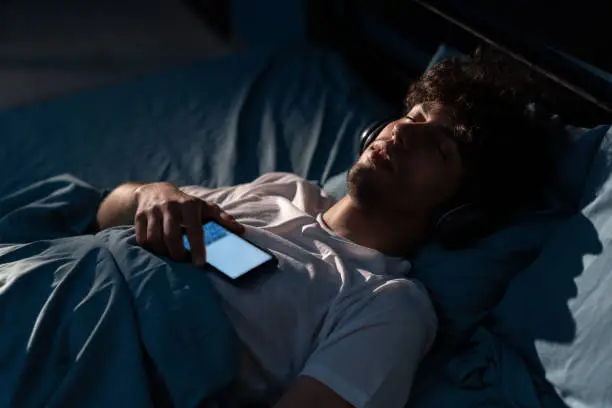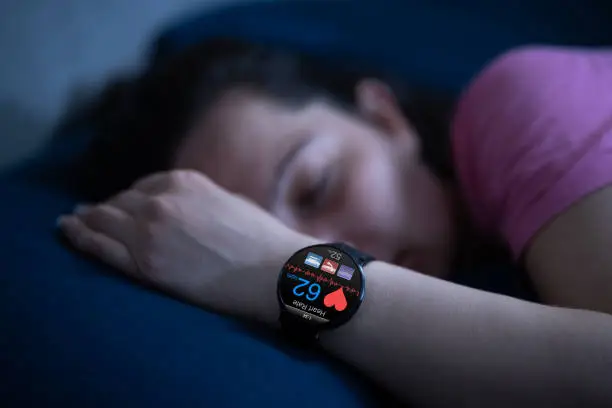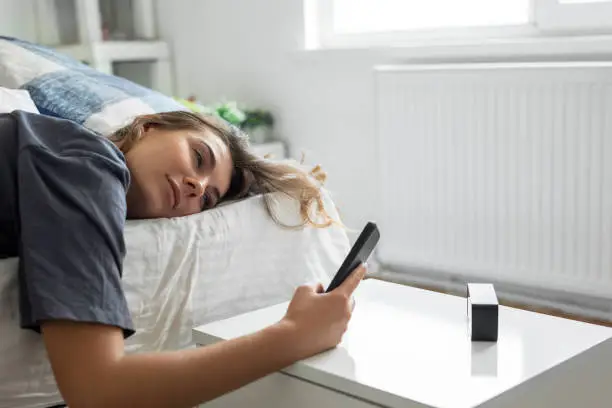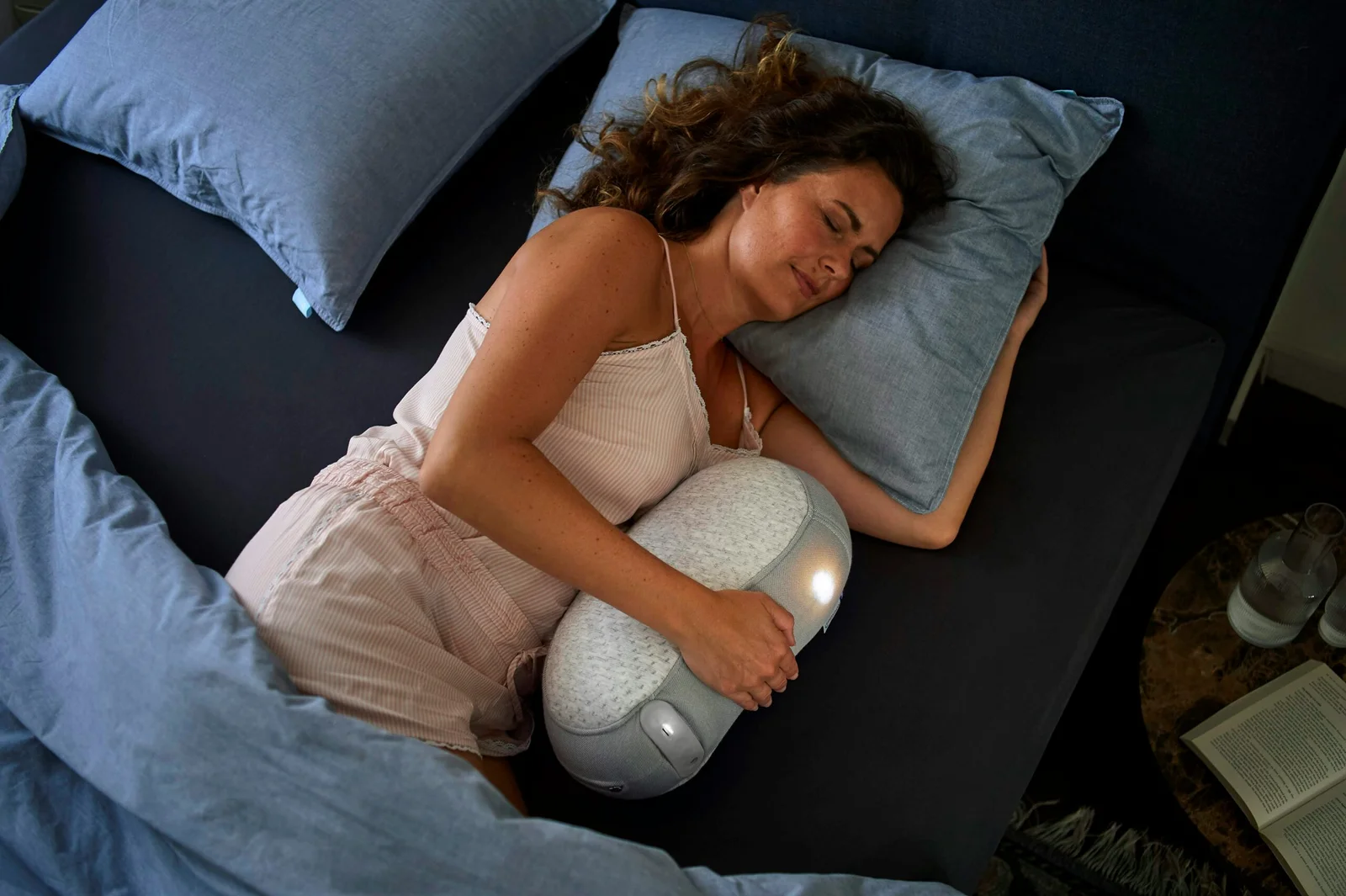We envision a world where everyone has the tools and knowledge to live a balanced, healthy, and fulfilling life. By providing reliable resources, personalized programs, and community support, we aim to be a beacon of hope for those on their health journey.
Table of Contents
Introduction to Sleep Technology

Improve sleep technology
In the contemporary landscape, sleep technology has emerged as a vital area of innovation, addressing the increasing challenges posed by our fast-paced lifestyles. Sleep, a fundamental biological necessity, directly influences various aspects of health, including cognitive function, emotional stability, and physical wellness. As our daily demands grow, the quality and duration of sleep often suffer, prompting the need for effective solutions.
The relationship between adequate sleep and overall health is well-documented, with numerous studies highlighting how proper rest can enhance cognitive performance, regulate mood, and bolster the immune system. Insufficient sleep is linked to a myriad of health issues such as anxiety, depression, and chronic physical ailments. Recognizing this vital connection, sleep technology aims to improve our sleeping patterns and consequently enrich our lives.
Sleep technology encompasses a wide range of tools, applications, and devices designed to enhance sleep hygiene and quality. learn: Natural Remedies Stress Anxiety Depression: How to Heal1 good; From wearable devices that track sleep cycles to smart mattresses that adjust firmness based on individual preferences, these innovations are tailored to meet the diverse needs of users. Furthermore, the integration of artificial intelligence in sleep aids allows for personalized recommendations, maximizing the potential benefits of each product.
This cutting-edge field not only focuses on tracking and analyzing sleep behavior but also emphasizes creating conducive environments for sleep. For instance, advancements in ambient lighting and sound technology can significantly affect the sleep cycle, promoting deeper rest. As society continues to grapple with the repercussions of sleep deprivation, the role of sleep technology becomes increasingly significant, shaping the future of how we approach rest and recovery.
The Science of Sleep: Understanding Your Sleep Cycle
Sleep is a complex physiological and neurological process essential for maintaining overall health and well-being. Understanding the science of sleep, particularly the intricacies of the sleep cycle, is crucial for enhancing restful nights through innovations in sleep technology. The sleep cycle comprises several stages, including Non-Rapid Eye Movement (non-REM) and Rapid Eye Movement (REM) sleep. Each stage serves distinct functions that are vital for physical health and cognitive function.
The sleep cycle generally encompasses four to five cycles per night, with each cycle lasting approximately 90 minutes. During non-REM sleep, which includes stages 1 to 3, the body experiences a gradual transition from wakefulness to deep sleep. Stage 1 is a light sleep stage where individuals drift in and out of consciousness, while Stage 2 sees the body enter a more stable state, marked by decreased heart rate and body temperature. Stages 3 concludes non-REM sleep, characterized by deep, restorative sleep that promotes healing, growth, and memory consolidation.
In contrast, REM sleep occurs when the brain is highly active, resembling wakefulness. During this stage, vivid dreams typically occur, and the brain processes and organizes information gathered throughout the day. REM sleep plays a crucial role in emotional regulation, creativity, and problem-solving. Hence, understanding these stages becomes critical when developing sleep-improving technologies, as disruptions in the sleep cycle can lead to various health issues, including fatigue, decreased cognitive performance, and mood disorders.
Innovations in sleep technology are increasingly considering the nuances of the sleep cycle. Devices that monitor sleep patterns and promote optimal sleep conditions can significantly contribute to achieving restorative rest. By leveraging the findings in sleep science, individuals can be equipped with the knowledge and tools necessary to enhance their sleep quality, thereby improving overall daily functioning and health.
Wearable Sleep Technology: Smart Devices for Better Sleep

The advancement of wearable sleep technology has revolutionized how individuals approach their sleep health. Devices such as fitness trackers, smartwatches, and sleep masks have emerged as indispensable tools for monitoring sleep patterns and improving overall sleep quality. These innovative technologies utilize sensors to collect a wide range of data, providing users with insights that can significantly enhance their nightly rest.
Fitness trackers and smartwatches are perhaps the most widely recognized forms of wearable sleep technology. These devices track various physiological parameters including heart rate, movement, and even skin temperature. By analyzing this data, they can provide users with detailed reports on sleep quality, revealing insights into how long they spend in different sleep stages such as deep sleep and REM. This information can be crucial for individuals seeking to optimize their sleep environment and rituals.
Moreover, wearable sleep technology is not limited to traditional fitness devices. Specialized sleep masks are now equipped with sensors that monitor brain activity and eye movements. These masks can subtly adjust light exposure or employ gentle vibrations to facilitate transitions between sleep stages, enhancing users’ ability to achieve restorative sleep. This integration of technology with personalized feedback allows individuals to make informed decisions regarding their sleep habits, thereby promoting healthier routines.
In addition to simply providing data, many of these devices come with companion applications that offer tailored recommendations based on user behavior. For instance, if a tracker identifies patterns of restlessness, it may suggest lifestyle adjustments such as reducing caffeine intake or establishing a calming bedtime routine. By harnessing wearable sleep technology, individuals can take proactive steps toward improving their sleep quality, contributing to better overall health and well-being.
Smart Beds and Sleep Environments: The Future of Rest
In recent years, advancements in sleep technology have transformed the way we approach rest and recuperation. Central to this evolution are smart beds, which integrate various innovative features designed to enhance the overall sleeping experience. These beds allow users to adjust firmness levels and temperature settings, catering to individual preferences and promoting a more restful night of sleep. The incorporation of these adjustable elements enables couples to customize their side of the bed, accommodating differing comfort requirements.
Moreover, many smart beds are equipped with advanced sleep tracking systems. These technologies monitor various metrics, including heart rate, breathing patterns, and sleep cycles. By analyzing this data, users can gain insights into their sleep quality and make informed adjustments to their nighttime routines. In doing so, they can improve their overall well-being and establish a healthier sleep environment.
In addition to innovative mattresses, the creation of sleep-enhancing bedroom solutions is also gaining traction. Sound machines, for instance, are becoming increasingly popular as they provide soothing background noise, which can mask disruptive sounds and promote better sleep hygiene. Similarly, the introduction of smart lighting systems has revolutionized bedroom environments. These systems can mimic natural light patterns, helping to regulate circadian rhythms by gradually dimming or brightening throughout the evening and morning, thus supporting a more natural sleep-wake cycle.
Combining these technologies within a cohesive sleep environment can yield significant benefits for individuals seeking improved rest. By leveraging smart beds, sleep tracking, and ambient enhancements, users can cultivate optimal conditions conducive to sleep. The integration of these innovative solutions signifies a notable shift in how we understand and prioritize sleep, reflecting a growing recognition of its vital importance in ensuring quality health and well-being.
Sleep Apps: Digital Solutions for Sleep Challenges

The proliferation of sleep apps has transformed the way individuals approach their sleep challenges. These digital solutions cater to a broad spectrum of issues, from difficulties falling asleep to maintaining uninterrupted sleep cycles. The versatility of sleep apps, available on both smartphones and tablets, empowers users to take control of their sleep environment and habits.
One of the primary functions of sleep apps is providing guided meditation sessions, which help users unwind and clear their minds before bedtime. These meditation features often incorporate calming voiceovers and ambient soundscapes designed to reduce stress and enhance relaxation. Users can choose from various themes or programs that align with their specific preferences, enabling personalized experiences that address their unique sleep challenges.
In addition to meditation, many sleep apps offer sleep soundscapes, which include a range of nature sounds or white noise specifically engineered to create an ideal sleep atmosphere. These sounds serve to mask disruptive noises and facilitate a deeper sleep. Users can select sounds that best suit their preferences, allowing for an individualized experience that can greatly enhance their sleep quality.
Another function of sleep apps is behavioral therapy for insomnia. Several applications feature cognitive behavioral therapy (CBT) techniques, guiding users through the process of identifying harmful sleep patterns and replacing them with healthier habits. This approach not only aids individuals in understanding the root causes of their sleep disturbances but also equips them with actionable strategies to improve their overall sleep hygiene.
Ultimately, the integration of sleep technology through apps has provided a systematic and approachable way for users to develop better sleep routines. As individuals continue to struggle with various sleep disorders, these apps represent a significant advancement in self-managed care, offering supportive resources to enhance restful nights.
Artificial Intelligence and Sleep: Customizing Your Sleep Experience
As the field of sleep technology advances, artificial intelligence (AI) emerges as a pivotal element for enhancing individual sleep experiences. AI-powered systems analyze an array of data points related to sleep patterns, behaviors, and lifestyle choices. By leveraging this data, these systems can offer personalized recommendations designed to optimize sleep quality. The integration of AI in sleep technology enables users to gain insights into their sleep habits, allowing them to make informed adjustments to achieve better restfulness.
One significant application of AI in sleep technology is the development of tailored sleep schedules. Through continuous monitoring and analysis of a person’s sleep data, AI algorithms can determine optimal sleeping and waking times that align with an individual’s unique biological rhythms. This customization is crucial since everyone has differing needs when it comes to achieving restorative sleep. By closely observing variables such as sleep duration, efficiency, and latency, AI can suggest adjustments that lead to improved sleep outcomes.
Moreover, AI plays a critical role in predicting potential sleep disruptions. By considering external factors like stress levels, dietary habits, and physical activity, AI systems can alert users to upcoming issues that may affect their sleep. This proactive approach allows individuals to implement preventive measures, thereby reducing the likelihood of sleepless nights. For instance, if the AI detects changes in a user’s health status or lifestyle that commonly lead to sleep disturbances, it may recommend strategies to mitigate these risks effectively.
In summary, AI significantly enhances sleep technology by providing customized experiences tailored to individual users. Through personalized recommendations, tailored sleep schedules, and predictive insights, AI empowers individuals to take a proactive approach to their sleep health, ultimately contributing to more restful nights and improved overall well-being.
Challenges in Sleep Technology: Addressing Skepticism and Limitations

The rapid advancements in sleep technology have sparked a mix of enthusiasm and skepticism among potential users. One of the prominent concerns revolves around data privacy. Many sleep tracking devices collect personal information, analyzing users’ sleep patterns and habits. This data, if not protected adequately, poses a risk of unauthorized access and misuse. Consumers are justified in their apprehension about how their sleep data is handled and stored, necessitating manufacturers to establish robust privacy policies and transparent practices to build trust.
Another significant challenge lies in the accuracy of sleep tracking. While several devices claim to provide detailed insights into sleep stages, movements, and overall quality, research indicates that many consumer-grade sleep trackers may not offer reliable metrics. The reliance on algorithms and subjective interpretations can lead to discrepancies between tracked data and actual sleep conditions. Users may find themselves confused or misinformed by the results, which can further fuel skepticism regarding the effectiveness of these technologies.
Additionally, there is a growing concern about dependency on sleep technology for achieving restful nights. Numerous users may develop a psychological reliance on sleep aids and trackers to the point where they are unable to sleep peacefully without their devices. This dependency can create a paradox, as the very tools intended to improve sleep quality may hinder users from cultivating natural sleep habits and self-awareness. It is essential for individuals to strike a balance between utilizing sleep technology and recognizing their body’s innate cues for a restful night.
Moreover, current limitations in sleep technology warrant further research and innovation. The dynamic nature of human sleep and its many influencing factors, such as stress and environment, requires ongoing exploration to enhance the effectiveness of sleep solutions. This commitment to advancement can pave the way for more accurate, user-friendly, and secure sleep technology in the future, ultimately enhancing the sleeping experience.
Future Trends in Sleep Technology: What to Expect
The future of sleep technology promises exciting developments that could significantly enhance sleep quality and overall well-being. As our understanding of sleep physiology advances, integrating cutting-edge technologies into our nightly routines is becoming increasingly feasible. One of the most notable trends is the incorporation of biometric sensors in sleep devices. These sensors monitor various physiological parameters, such as heart rate, respiration patterns, and even body temperature, providing users with comprehensive insights into their sleep patterns. The data collected can help individuals identify sleep disruptors and personalize their sleeping environments for optimal rest.
Another area poised for growth is the application of virtual reality (VR) in promoting better sleep. Recent studies suggest that immersive VR experiences can help individuals reduce anxiety and facilitate relaxation before bedtime. By creating calming environments, VR could serve as an effective tool for those struggling to fall asleep or stay asleep, offering an innovative approach to combatting insomnia without the use of medications. Furthermore, as the technology behind VR advances, we can expect more tailored experiences that adapt to individual preferences and needs, thereby enhancing their effectiveness.
Advancements in sleep medicine also hold great potential for the future of sleep technology. With ongoing research into sleep disorders, new treatments and interventions are continually being developed. For example, precision medicine may enable healthcare providers to prescribe individualized therapies based on a person’s genetic makeup and specific sleep challenges. This personalized approach could lead to more successful outcomes for those suffering from chronic sleep issues.
As we look toward the future, it is evident that innovations in sleep technology, including biometric monitoring, virtual reality applications, and breakthroughs in sleep medicine, will play a pivotal role in enhancing our nightly rest. These advancements promise not only to improve individual sleep quality but also to contribute to a broader understanding of sleep health for society as a whole.
Conclusion: The Importance of Staying Informed About Sleep Technology

In today’s fast-paced world, the significance of quality sleep cannot be overstated. The innovations in sleep technology showcased throughout this blog post highlight a range of solutions designed to improve our nightly rest. From advanced sleep trackers that analyze sleep patterns to smart mattresses that adjust firmness based on comfort preferences, these technologies offer promising avenues for enhancing overall sleep quality.
Understanding how these advancements can impact your sleep experience is crucial. As we delve deeper into the field of sleep technology, staying informed about new developments ensures that individuals can make educated choices tailored to their unique sleep needs. Examples such as sleep apps, sound machines, and even wearable technology offer distinct benefits that can contribute significantly to a more restful night.
Moreover, as the research surrounding sleep continues to evolve, so do the options available for improving sleep routines. It is essential to remain aware of emerging trends and evidence-based practices that support sleep hygiene. Engaging with forums, reading research articles, and following industry news can cultivate a well-rounded understanding of what is applicable and beneficial in the realm of sleep technology.
Prioritizing sleep is not merely about choosing the right devices but also about fostering an environment conducive to rest. The advancements in this field provide the tools necessary for individuals to optimize their sleep hygiene and overall health. Exploring various sleep technology options empowers users to enhance their sleep quality consciously. Ultimately, informed decision-making can lead to more restorative nights and improved well-being, making it critical for everyone to embrace the benefits that come with a well-informed approach to sleep technology.








